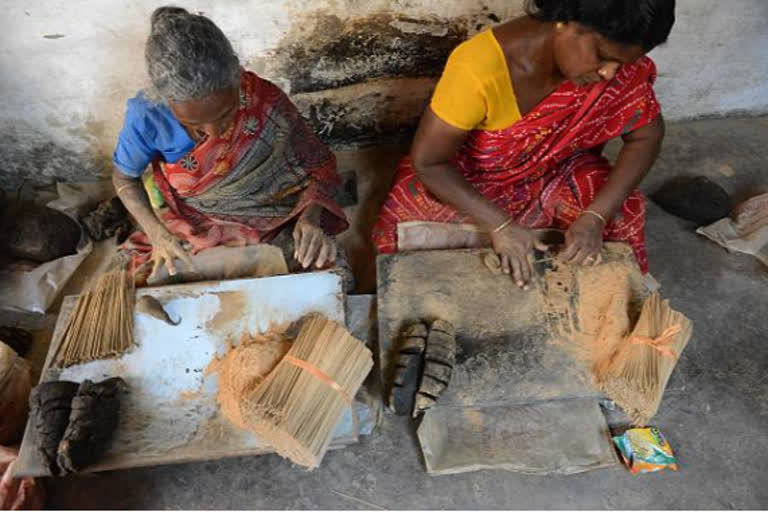New Delhi: The Khadi and Village Industries Commission (KVIC) said, here on Thursday, around 100,000 jobs could be created in the agarbatti (incense stick) industry in the next 8-10 months after the Centre decided to increase import duty on bamboo sticks to 25 per cent from 10 per cent.
It would strengthen the incense stick as well as the bamboo industries, said KVIC Chairman Vinai Kumar Saxena.
The Finance Ministry recently increased import duty on bamboo sticks as part of the initiative taken by MSME Minister Nitin Gadkari aimed to discourage import and help local industry grow.
Import of bamboo sticks from China and Vietnam had caused big employment losses. The rise in import duty will pave the way for new agarbatti manufacturing units to meet the ever growing domestic demand.
The incense sticks' domestic consumption is pegged at 1,490 tonnes a day. But only 760 tonnes a day is produced locally. The huge demand-supply gap led to large-scale import of raw incense sticks.
"The import of raw incense sticks increased from just 2 per cent in 2009 to 80 per cent in 2019," the KVIC said. In value terms, it increased from Rs 31 crore in 2009 to Rs 546 crore in 2019.
The UPA government in 2011 had reduced import duty from 30 per cent to 10 per cent. It hit the domestic Indian incense sticks manufacturers hard, causing closure of nearly 25 per cent units, the KVIC said.
The KVIC claimed on its request the Commerce Ministry on August 31, 2019 placed the incense stick import under "restricted" category. While it revived hundreds of units in various states, like Maharashtra, MP, UP, Gujarat and several N-E states, it also prompted traders to import round bamboo sticks. The import of bamboo sticks increased from Rs 210 crore in 2018-19 to Rs 370 crore in 2019-20.
India, the second largest producer of bamboo in the world, is also the second largest importer of bamboo and its products. India produces 14.6 million tonnes bamboo every year. Nearly 70,000 farmers are engaged in bamboo plantation of around 136 domestic varieties.
"The duty hike will curb imports from China and encourage local manufactures," Saxena said.
Incense stick industry, a part of the village industry, requires small capital and little technical skill. It also employs women workers.
The Bambusa Tulda variety, used for making incense sticks, is found in abundance in the northeast region. The KVIC has also launched a bamboo plantation drive to make the country self meet the growing demand of bamboo in the next 3-4 years.
(IANS Report)



